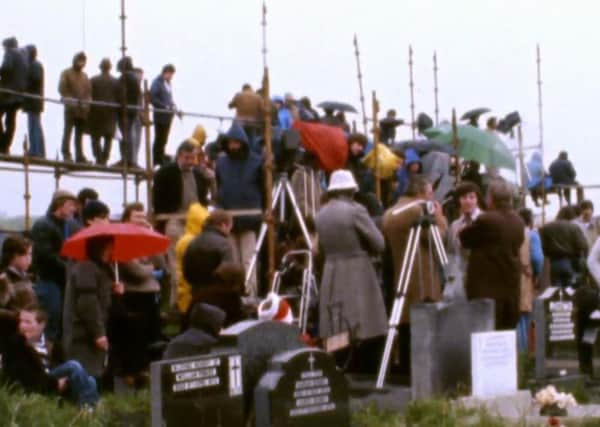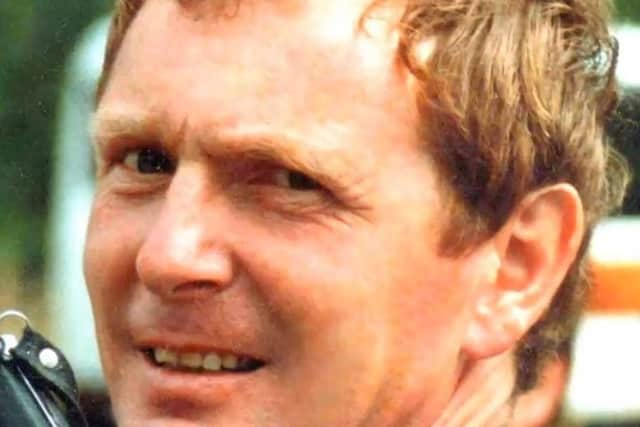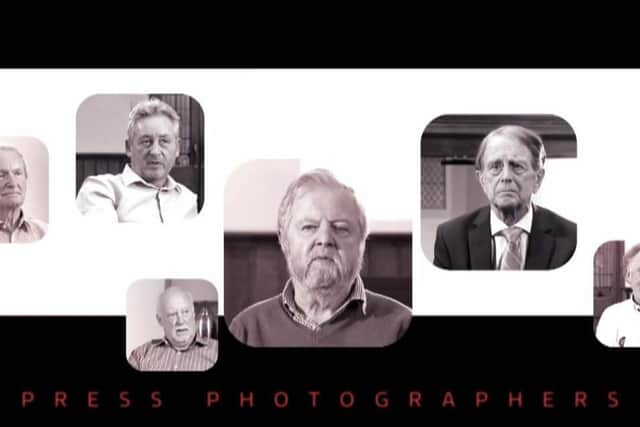Press photographers give unique insight into horrific events of the Troubles


The first series in 2019 marked the 50th anniversary of the start of The Troubles, highlighted doctors and nurses, teachers, entertainers, social workers and people from the business community talking about how they were impacted personally and professionally.
The new series was researched and shot during lockdown and features interviews and footage from UTV’s rich archive library.
Advertisement
Hide AdAdvertisement
Hide AdIt shines a light on another five key groups of people – ambulance men, firemen, bus drivers, press photographers and the clergy.


Interviewees give first-hand accounts of their jobs, and how they dedicated their lives to their various professions to keep life moving despite the conflict that was going on, and regardless of the personal impact.
The new episodes have also taken some of those involved back to the scenes of incidents, allowing them to show exact spots where they were and how events unfolded.
Episode four, which will be broadcast on Thursday night at 10.45pm, is about press photographers and features recollections of the Troubles from former News Letter snapper Trevor Dickson as well as Hugh Russell, Gerry Fitzgerald, Stanley Matchett, Fred Hoare and Paul Faith.
Advertisement
Hide AdAdvertisement
Hide AdRecalling Bloody Friday on July 21, 1972 Trevor Dickson said: “I remember bombs going off all over the place. I was sent up to the top of the Cave Hill Road where three people had been killed. It was a shocking thing to see, the devastation that was around you. You just took the photograph and you just got out of the way as quick as you could.”


Former Belfast Telegraph photographer Stanley Matchett revisited the Donegall Street bomb on March 20, 1972, when seven people were killed. In the aftermath Stanley took a famous photo of a paratrooper holding an injured girl.
He recalled: “The whole place was devastation, carnage, the dead bodies, some injured people. The whole facade of the News Letter building had been flattened.
“As the dust all cleared and it has settled down you could see further. I could see what looked like a paratrooper, embracing a girl. The girl had been seriously injured. It was so moving and in such contrast to some of the more horrible shots of that day.”
Advertisement
Hide AdAdvertisement
Hide AdSeries Producer Sinead Hughes said: “Once again, the professions we have highlighted are the unsung heroes of that time. I was honoured that the ladies and gents we interviewed spoke so openly and honestly about their experiences, given that many have long since retired from their profession, and who in some cases were revisiting memories long hidden.
“I would encourage everyone to tune in, be that people who lived in Northern Ireland during that time, or indeed our younger generation who gladly did not have to experience life in that time.”
• Series two of Frontline continues on UTV on Thursday night at 10.45pm.
A message from the Editor:
Thank you for reading this story on our website. While I have your attention, I also have an important request to make of you.
Advertisement
Hide AdAdvertisement
Hide AdWith the coronavirus lockdown having a major impact on many of our advertisers - and consequently the revenue we receive - we are more reliant than ever on you taking out a digital subscription.
Subscribe to newsletter.co.uk and enjoy unlimited access to the best Northern Ireland and UK news and information online and on our app. With a digital subscription, you can read more than 5 articles, see fewer ads, enjoy faster load times, and get access to exclusive newsletters and content. Visit https://www.newsletter.co.uk/subscriptions now to sign up.
Our journalism costs money and we rely on advertising, print and digital revenues to help to support them. By supporting us, we are able to support you in providing trusted, fact-checked content for this website.
Alistair Bushe
Editor